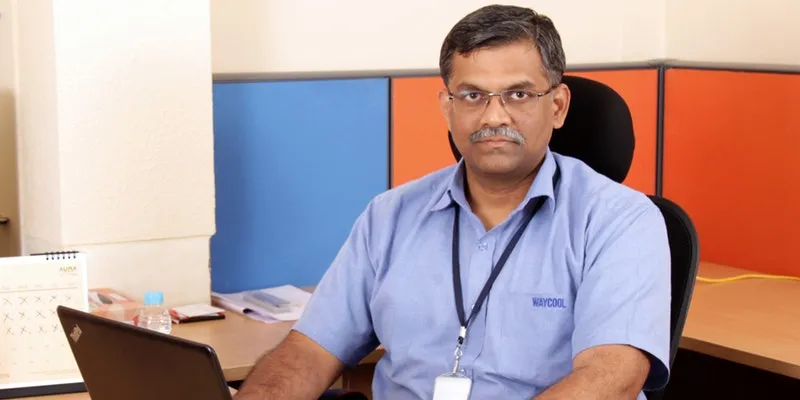Waycool, Bijak, DeHaat — how are the top-funded agritech startups helping the Indian farmer community
Indian agritech startups are leveraging new-age technology to help farmers connect with the market, especially during the pandemic.
The integration of technology in the agriculture sector has been a boon to Indian farmers. Thanks to the growing number of agritech startups in India, farmers can now get better quality seeds, fertilisers, timely weather information, access to markets, and financial support.
According to Research report, the Indian agriculture sector is expected to get a boost during the year 2020 as the demand for quality agricultural produce such as grains, fruits, and vegetables is expected to rise. Further, the higher demand for online groceries in the COVID-19 environment will prove to be a boost for agritech startups.
As per a report by , India's agritech sector attracted about $245 million in investments from venture capital firms in 2019.
In fact, to give a further boost to the sector, the Indian government announced a slew of policy measures, which are expected to strengthen infrastructure, logistics, and capacity building.
Here are this year’s five top-funded agritech startups (based on the total funding raised), who are leveraging new-age technology to help farmers connect with the market.

Karthik Jayaraman, Co-Founder and CEO, WayCool Foods
Started in July 2015 as a B2C fruits and vegetable supply chain named SunnyBee, food supply chain startup WayCool Foods and Products pivoted to a farm-to-fork B2B model in early 2017.
The agritech startup, founded by Karthik Jayaraman and Sanjay Dasari, uses technology to control the end-to-end agriculture supply chain — right from farming inputs to last-mile distribution — to help farmers sell their produce through multiple distribution channels.
Headquartered in Chennai, WayCool focusses on solving the food wastage and farmer income problems since its inception.
According to Crunchbase data, Waycool has raised a total of $70.6 million in funding so far, including debt financing. Recently, in August, it raised a funding of $114,000 from a Grant round led by Dutch entrepreneurial development bank FMO.

The DeHaat Team
Established in 2012 by IIT Delhi alum Shashank Kumar, and IIT Kharagpur alum Manish Kumar, DeHaat is an online platform that connects small farmers with a network of micro-entrepreneurs. These micro-entrepreneurs supply various farm inputs and equipment, procure seeds and fertilisers, as well as offer crop advisory and market linkages to the farmers on the platform.
The Delhi-based startup works with farmers in Bihar, Jharkhand, and Odisha, and enables them to access the right inputs within less than 24 hours to less than a week. Serving over 210,000 farmers, DeHaat provides access to over 3,000 agricultural inputs — combined with AI-based customised crop advisory content for pest and disease management — for major crops delivered via mobile app and call centres.
In April 2020, the agritech platform raised its Series A funding of $12 million led by Sequoia Capital. With this round, DeHaat’s total funding adds up to $19.3 million.
Founded by Nikhil Tripathi, Daya Rai, Jitender Bedwal, Mahesh Jakhotia, and Nukul Upadhye in 2019, Bijak is working on bridging the information asymmetry and lack of accountability across agricultural commodities trade.
The Gurugram-based startup enables traders and wholesalers to discover new suppliers, maintain ledgers, make payments, and access working capital through its app to scale their business.
The startup’s proprietary app is available in several regional languages and caters to multiple states, including Maharashtra, Uttar Pradesh, Madhya Pradesh, Punjab, Bihar, and Uttarakhand.
Bijak has raised $14.3 million so far. In April this year, it raised $11.8 million in its Series A round from Omnivore Partners, Tempo Ventures, and Bi Fund, among others.

Team Intello Labs
Started in 2016 by Milan Sharma, Nishant Mishra, Himani Shah, and Devendra Chandani, Intello Labs uses image analytics and AI to help farmers, retailers, and exporters to access the quality of their fruits and vegetables.
The agritech startup’s mobile app uses AI and image analytics to give a complete update on whether a fruit or vegetable is under-ripe, ready to consume, or damaged. It does this by taking an image of the produce, which checks the quality of the entire lot.
Intello Labs raised its Series A round of $5.9 million in May led by early-stage investor Saama Capital, along with global agritech funds GROW (Singapore) and SVG Ventures THRIVE (US). The startup has so far raised $8.5 million.
Arya Collateral
Delhi-based agritech startup Arya Collateral provides storage services in warehouses near the farmer’s farmgate, so that they are not forced to sell their produce at a lower price, immediately after harvesting when the supply is high.
The startup charges a monthly storage fee — ranging between Rs 60 and Rs 100 per ton to the farmers — which is equivalent to a monthly fee of Rs 4 to 6 per bag.
Apart from that, it also helps them avail loans through its own NBFC. Serving close to two lakh farmers, either directly or through FPOs on a B2C model, Arya Collateral has managed 30 lakh tonnes of produce across 1,500 of its warehouses across India.
To sell the farm produce, the startup connects the farmers with agri-corporations such as ITC Limited, Cargill, Louis-Dreyfus Commodities, SAB Miller India, and Britannia.
It has so far raised a total of $7.9 million. In March, the startup raised $6 million in pre-Series B funding led by Omnivore and existing investor LGT Lightstone Aspada.
(With story inputs from Debolina Biswas, Sindhu Kashyap, and Vishal Krishna)
Edited by Suman Singh



![[RESEARCH] Funding 2020: More deals, less money - an in-depth look at H1 investment trends in the Indian startup ecosystem](https://images.yourstory.com/cs/2/604090802d6d11e9aa979329348d4c3e/Imagelyr6-1595412755542.jpg?fm=png&auto=format&h=100&w=100&crop=entropy&fit=crop)
![[Funding alert] Lightbox leads $32M investment in agritech startup WayCool Foods](https://images.yourstory.com/cs/2/b87effd06a6611e9ad333f8a4777438f/Imageu9k4-1581052799202.jpg?fm=png&auto=format&h=100&w=100&crop=entropy&fit=crop)







